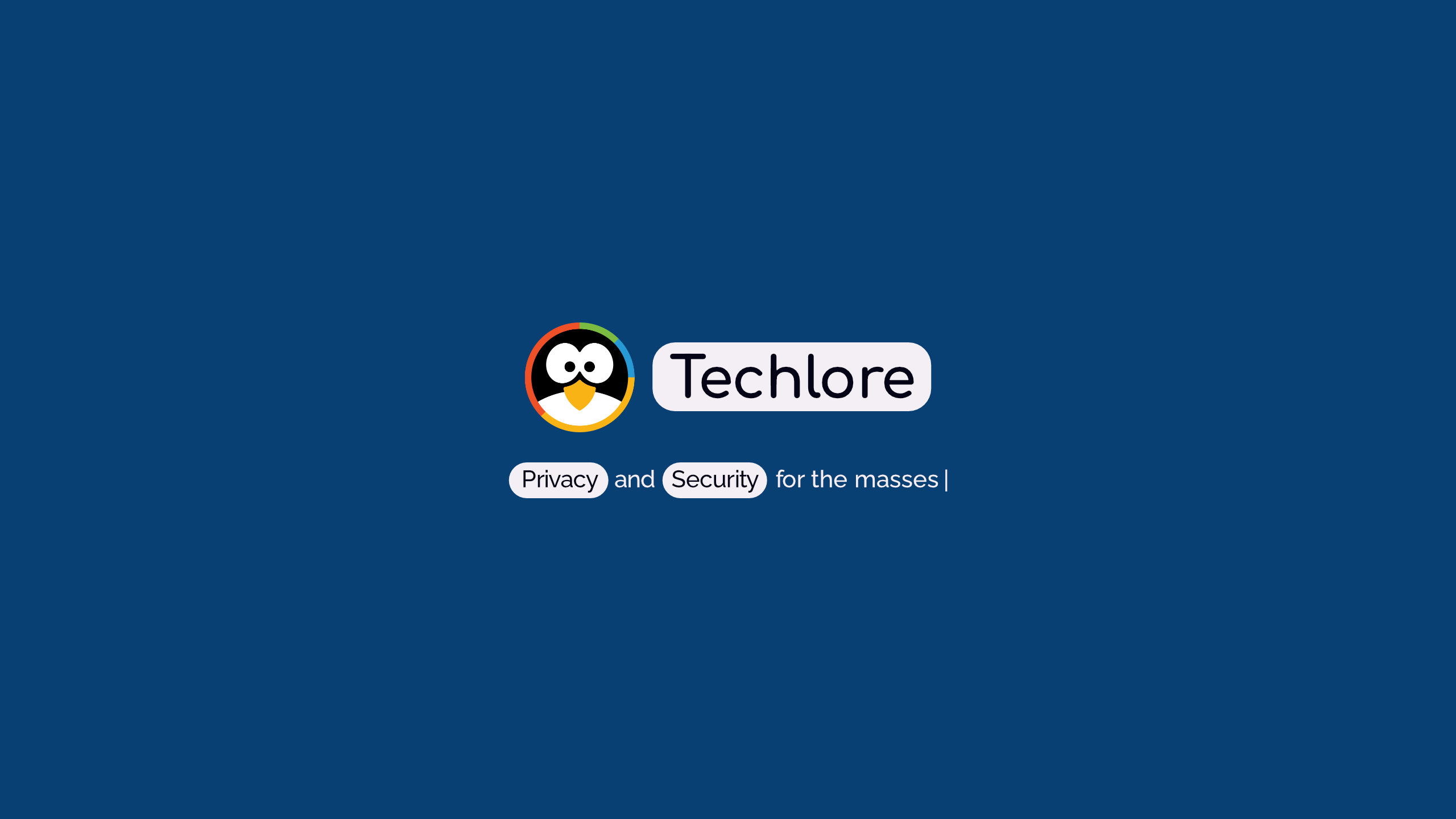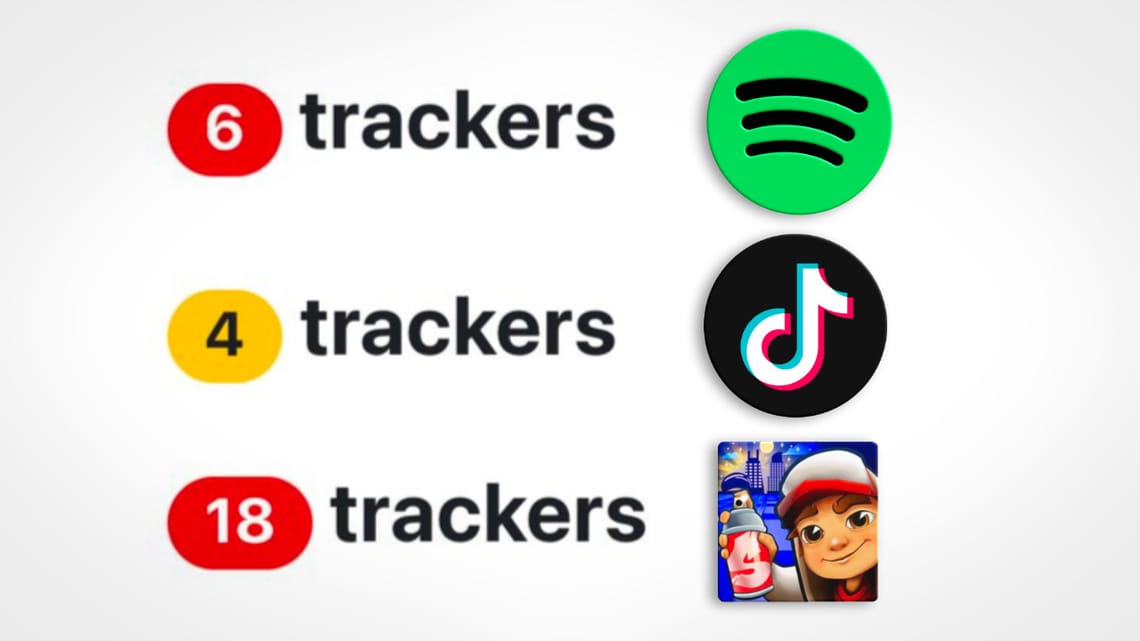For those who don’t know me, my name is Henry and I’m the CEO of Techlore — a team with the goal of spreading privacy to the masses through various resources and video content. I also am a co-host for the podcast Surveillance Report — where people can keep up with the convoluted news in the privacy world. I’ve been deeply involved in the privacy community for years now, and well…I feel done.
The alluring human right of privacy is trampled daily through a losing battle we’ve come to accept as just life. We are up against some of the most powerful entities to ever exist — the Facebooks, Googles and Amazons of the world who want nothing more than to harvest every piece of data to fuel the surveillance capitalism of the 21st century. In addition, their hands are deep in politician’s wallets to control one of the few avenues we can use to reclaim the smallest glimmer of freedom. Nevertheless, as hopeless as this war can be, it isn’t those in power that discourage me — it’s the privacy community itself.
I’m incredibly discouraged at the privacy community’s inability to come together for a losing fight. There is nothing more those in power want to see than our inability to cooperate, instead opting to bicker for hours about a user’s browser choice…why someone’s messenger isn’t good enough…why Tor isn’t good enough…why someone shouldn’t use a VPN when Tor exists — even if all these tools properly fit the individual’s threat model. Ultimately, the issues seem to boil down to two causes: A) An utter lack of empathy, and B) The distaste for evidence-based, personalized information.

Empathy
- Empathy is understanding we once used to have Facebook accounts.
- Empathy is understanding different people have different threat models.
- Empathy is experiencing the emotions someone experiences when they first learn about the privacy-invasive world we live in.
- Empathy is active understanding when someone suffers a data breach, avoiding the temptation to shame the impacted user for not having better OPSEC.
The sheer lack of empathy in the privacy community is astounding, I’ve never seen anything quite like it. Developers attacking other projects to protect their fragile ego, people new to privacy being shamed for not knowing everything out the gate, users pushed to feel regret because of their conscious (and commonly educated) decision to stay within the Apple ecosystem and work within its limitations. The list goes on. Expressing empathy can be a difficult skill. But in the privacy community, the lack of empathy spreads like wildfire — meaning it is vital we prioritize it. Every time we fail to express empathy, we introduce a new brick in the wall excluding ourselves from the outside world. Consequently, this directly prevents our ability to spread our message to others — sealing our fate.

The Individual Threat Model
The second issue I’ve observed in the privacy community is the utter lack of evidence-based, personalized information. Many people are more attracted to the idea of a service being a honeypot than being safe, even if all signs point to the latter. This overall makes a great deal of sense: we feel victimized, we feel the world is working against us, we feel anything is possible, we need to stay on our toes. However, the reality is we need to bury our heads in evidence-based approaches to improving privacy or security, or else we let a person online selling dangerous products convince people that ProtonMail is a honeypot, and that their own platform with falsely advertised E2EE, no community oversight, and readily available exploits is the ‘true’ solution. ProtonMail is open source, community-vetted, approved by some of the most trustworthy individuals in the privacy space, and has proven time-and-time again through court cases they only comply as they originally promised they would. To put it simply: ProtonMail is one of the best services attempting to address email’s inherently broken issues.
But what happens? One court case comes out, and ProtonMail is now a honeypot, despite them complying with the case exactly how they promised they would in blog posts dating back to 2014 — they handed over an individual’s IP address. What’s fascinating is many of the individuals proclaiming ProtonMail to be a honeypot due to this incident flocked to Tutanota, an email provider who dealt with an eerily similar case in Germany a few years ago. In fact, almost every email provider deals with these cases — they are required to by law. The true error lies in the users who misunderstand what a “private” email provider offers them, thinking the solution is all-or-nothing privacy. Rather than adjusting their expectations accordingly, confirmation bias forces the user into believing the service must be compromised — successfully avoiding all layers of nuance. I’ve unironically heard from these individuals that we may as well be using Gmail since ProtonMail handed over an IP address in an international investigation — despite ProtonMail still protecting the contents of all of their emails, still offering an open source experience to users, still protecting all other aspects of their user’s privacy, still offering simplified PGP support, still offering end-to-end encryption for external contacts who don’t use ProtonMail, still offering end-to-end encrypted contacts, still offering private sign-up options, still offering a Onion website, and many more things Gmail could never offer them. ProtonMail is a common example, but this problem plagues countless services in the community, to name a few:
- Signal is compromised because of a phone number requirement, despite all points of evidence proving Signal is safe for a large number of threat models.
- Brave is spyware because of two scandals unrelated to its privacy & security.
- Firefox is spyware because of Pocket.
- Tor is compromised because the government has gained access to a percentage of nodes.
To paraphrase the mentality, “Something isn’t perfect, therefore it shouldn’t be used” — this is the nirvana fallacy at its best, or “the informal fallacy of comparing actual things with unrealistic, idealized alternatives. It can also refer to the tendency to assume there is a perfect solution to a particular problem.”
The irony is if we apply the same fallacious mentality to the services these individuals actually believe are safe, you achieve the same result:
- To the user who ditched Signal for Session because of the phone number requirement, let’s talk about Session’s lack of Perfect Forward Secrecy, which consequently makes it compromised.
- To the user who ditched ProtonMail for Tutanota, let’s talk about Tutanota’s German court case, proving they were a honeypot.
- To the user who ditched Brave & Firefox for an out-of-date Firefox fork, let’s talk about its delayed security updates and how it’s most certainly a honeypot.
At the end of the day, every service has drawbacks. To add additional complexity, a service can have different advantages and disadvantages on a per-user basis, as an individual’s threat model dictates the services that work best for their needs. It’s completely valid to stop using an email provider if their compliance with an international investigation impacts your threat model, but it does not mean the service is a honeypot. We need to consider individual threat models and offer personalized advice to avoid planting unnecessary seeds of doubt in an already fragile community that struggles to be a single collective.

My Declining Passion
Pivoting to a more personal note, I want to discuss my experience within Techlore. We dedicate countless hours towards our content. My stomach sinks when we put out a video that we spent weeks digging for the best possible information, reading through countless research papers and articles, condensing this complex information into an approachable 8 minute video, only for a loud minority of users to leave comments filled with complete misinformation — fed nonsense from a self-proclaimed expert, a sensationalized video, and/or a misleading blog post. (For the record, we should not be your only source of information and we encourage everyone to verify what we share as well.) What are we supposed to do about these comments?
- Delete them and deal with the inevitable accusation of limiting people’s free speech?
- Engage with the comments and be accused of sheltering the projects they think are honeypots?
- Ignore it and let their beliefs spread?
We normally take the approach of dealing with these rumors head-on in their own dedicated content through our Privacy Misconceptions series, but the comments don’t stop. In fact, they only grow. Consequently, I’ve never felt more discouraged in my work than I do now, and this is the work I’ve been doing for 6 years. It saddens me that I’m even considering saying goodbye sometime in the near future as this has been my entire livelihood since High School. And for the record, I am not 100% innocent in these issues, none of us are.

Like much of the content and resources we publish on Techlore, I want to include real takeaways and solutions for people, not just complaints about the state of things. If you’re still reading, I assume you at least somewhat agree with what was stated. If not, I applaud you for opening yourself to the discussion. Here they are:
- Learn empathy. Remember what your life was like before you learned about the privacy world. This is still the current state of the wide majority of people in the world.
- Be kind. I have my regrets on my journey, and I’m sure many of you do too. All we can do is move on and make improvements for tomorrow.
- Be creative. We need people to put themselves out there creatively if we hope to have any chance of turning the needle.
- Keep an open mind. Obtain your information from several sources. Cross-reference sources. Fact-check details. Keep nuance in mind. Learn about threat models and how pretty much every piece of hardware and software has a place in someone’s threat model, even if it has none in yours.
Bonus: I wanted to specifically mention some individuals/projects who are actually fantastic at avoiding these common issues. I am forever grateful for them and they’re part of the reason I’m still here.
- My team-members Tori & Jonah
- Our hard-working mods inside our communities
- The EFF
- The Calyx Institute
- The New Oil
- The Opt Out Podcast and its host Seth for Privacy
- Nicholas Merrill
- Douglas Tuman
- Sean O’Brien
- Justin Ehrenhofer
- NixiePixel
- Ironically, Edward Snowden.
Stay informed on digital threats and how to fight back—delivered directly to your inbox.










Member discussion